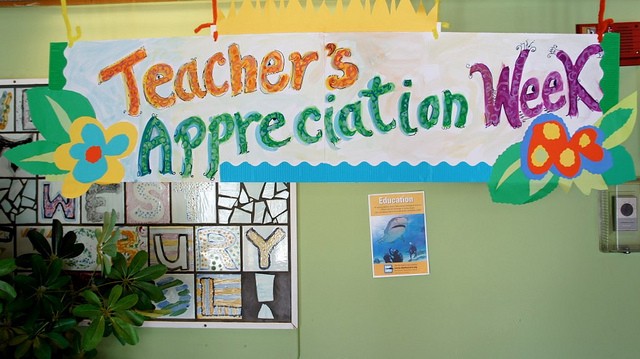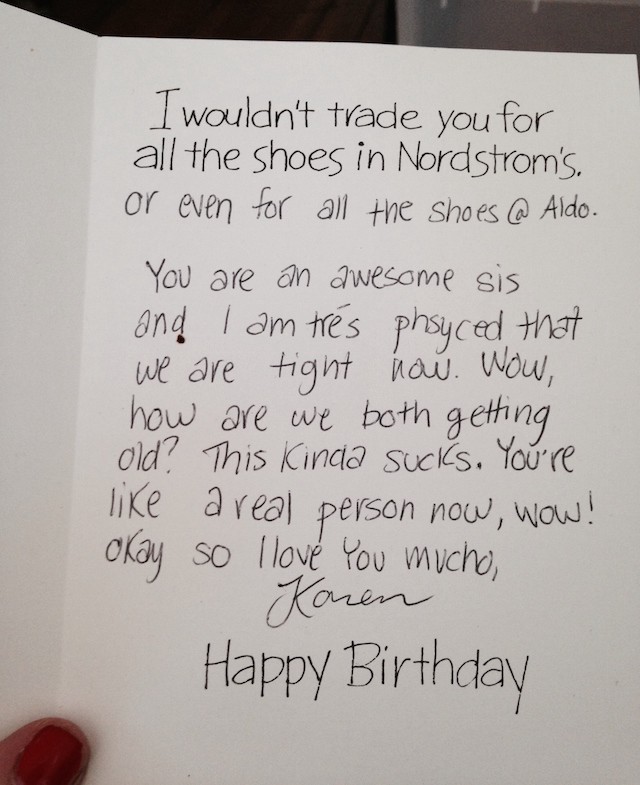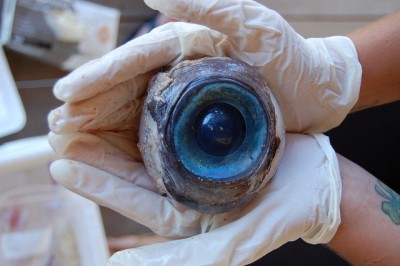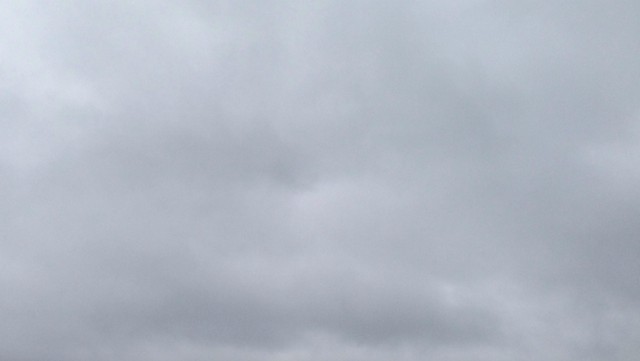Uber Optics

As communities are heading back to school, we’d like to take a moment to celebrate the educators who are also our Uber partner drivers. Whether it’s an afternoon shift or a summertime gig, partnering with Uber provides teachers with the flexibility and opportunity they need to continue creating a foundation of excellence for students across the country.
Every day teachers are asked to do more with less, constantly faced with new challenges and limited resources. Uber opens the door for more possibilities and delivers a meaningful impact to the communities we serve.
Teachers are among the most dedicated, passionate and hardworking professionals — a few of the qualities that make the best Uber partner drivers. Throughout the year, we’ll continue to invest in providing opportunities for educators in cities around the world — recognizing the need for more income options on their own terms.
This post on Uber’s blog almost feels like a parody. Surely, no modern, wealthy society — say, one in which an app-powered “your own private driver” service might thrive — would force professional, full-time teachers to also drive cars in order to make a living, nor would anyone celebrate that it was happening. Certainly you wouldn’t expect corporations to rush to attach themselves to the phenomenon. And yet. Something, something, teachers, free markets, living wages, man.
The problem with Uber self-seriously announcing that it “provides teachers with the flexibility and opportunity they need to continue creating a foundation of excellence for students across the country” is ultimately a matter of tone, not the literal fact that teachers are using Uber to supplement their incomes. (Lots of teachers work summer jobs!) Had Uber tweaked the language the slightly, with a pinch of outrage — “Every day teachers are asked to do more with less, constantly faced with new challenges and limited resources, and it astounding that they have to use Uber to generate those resources” — it would seem almost righteous, rather than crassly exploitative of the ills of the American education system. But the post seems to go to great pains to avoid acknowledging the actual issues facing teachers or the sources of those problems. Uber is unable to do this, perhaps, because a world in which teachers must drive cars in order to make ends meet, a gig economy, is clearly one that is post-union — one in which Uber thrives, not only because it ensures an unending supply of the underemployed to put behind the wheel, but because it suits the way that the company treats its drivers, who are independent contractors, even though they are euphemistically referred to as “partners.”
That the company’s consistent, nearly frozen posture of disingenuous smirking means that the most perceptible “Uber problem” is almost always how it frames things, rather than how it actually operates, whether it’s systematically sabotaging of competitors or using its quarter-billion-dollar war chest to relentlessly cut fares and driver pay to unsustainable levels in order to undercut existing transit systems, is remarkable in its way, though. If your company’s trying to conquer the world, in the end, being a dick might be the best PR strategy of all.
Photo by vbecker
Inherent Vice, Awkward Mood
Inherent Vice, Awkward Mood
If the options for an Inherent Vice movie were Joaquin Phoenix reciting Pynchon’s best lines in a grave tone OR Joaquin Phoenix slipping in and out of mania while falling down a lot, physically, this seems to have been the right choice. It’s just barely apparent in the trailer, but here is something that I’m curious to see in practice: Robert Elswit, longtime Paul Thomas Anderson collaborator, is listed as the movie’s cinematographer. Elswit’s all BIG SKIES and SYMMETRY and LINGERING SHOTS and MUSCULAR ACTION. There’s not a whole lot of comedy in his credits! And certainly nothing quite like this: “It’s a stoner detective film so overstuffed with visual gags and gimmicks that the filmmaker said he was inspired by slapstick spoofs like ‘Top Secret!’ and ‘Airplane!’”
New York City, September 28, 2014

★★★★ Stepping out into the late morning air was like settling into a bath that had been waiting for a while — an enfolding, relaxing tepidness, not at all hot. Clouds softened the shadows on the playground. Children bored with chalking the concrete camel tried chalking other children’s faces. The sun that got through was warm on bare ankles. The lid of the exhaust stack on a pony-sized Parks Department garbage truck clanged rhythmically with a sound of toy cymbals. By the afternoon, when there was no reason not to go to the playground again, the light had sharpened, but a haze still glimmered around the low-flying airplanes. The breeze was cooling, though it was barely strong enough to stir the dangling flags a little back and forth. Day’s end brought wild pinks flaring one either side of the glass apartment tower, but the seven-year-old, unmoved, declared it a normal sunset.
Time Spent
That audience-measuring company Chartbeat has “gained accreditation from the Media Rating Council for attention-based measurement of both content and advertising” is important to advertisers and therefore to all the people whose work and internet time-wasting activities depend on them. This metric, the apparent next metric, after page views and “uniques,” is perhaps harder to trick but still easy to optimize for, especially if you’re one of the new formless internet publishers — a relatively straightforward video, a quiz, or some as-of-yet unknown demanding media object that can hold you still, if not keep you truly engaged, will, in time terms, usually beat out a written story that takes a long time to produce and read. People are already hashing this part out.
What they’re not yet hashing out what this means for another type of company: The read-later apps. So let’s start: Instapaper, Pocket, Readability, Longform — the apps that take links and make them into clean little ad-free phone pamphlets that you can read on a plane — have been criticized, celebrated, but mostly tolerated. They help people read your work, which is encouraging; they also, at some point in the copy/clean process, at least give you a click, which is what you, or your editor, or your publisher, ultimately needs. Now, imagine a world in which “attention minutes” or some such measurement is how your employers measure the success of your work — a world in which its measurable value is connected to the time people spend with it. In that world, read-later apps, as they function now — giving you a click, but siphoning all of your time — are theft. Well?
The Useless Crap You Find When You Move
by Matthew J.X. Malady
People drop things on the Internet and run all the time. So we have to ask. In this edition, BuzzFeeᴅ Executive Editor Doree Shafrir tells us more about the pitfalls of packing and unpacking and constantly moving from one apartment to the next.
Just found a stuffed manila envelope labeled “2006 crap.” Moving is so fun. pic.twitter.com/0Ob4GrstLM
— Doree Shafrir (@doreeshafrir) September 20, 2014
Doree! So what happened here?
When I moved out of the apartment I shared with my then-boyfriend in Fort Greene, Brooklyn, in 2009, I got rid of my huge file cabinet and threw everything that had been in there into two storage boxes. They sat in the back of the closet TB and I shared in Carroll Gardens; when TB and I broke up, they moved into a closet in a different apartment in Fort Greene; when New York and I broke up, they found a home in the back of a closet in my new apartment in Los Angeles. It wasn’t until last week, when I was packing up my apartment to move in with my current boyfriend, that I decided it was time to excavate whatever was in those boxes.
I can’t say I recommend bringing two heavy boxes that you never open with you to three different apartments, but the upside is that you *will* discover a time capsule of sorts, especially if you used to save everything. There were my post-college journals, there were letters I’d written from sleepaway camp when I was 14 (“Yesterday in sailing I went out on a boat with Caroline, Beth, & Tammy. It was really fun”), there were fraying photographs of my grandparents in an envelope marked “photos to restore,” there was a typewritten 23rd birthday card from my best friend and birthday cards from my sister. There was a rejection letter from an editorial assistant job at FSG, with a handwritten “Doree, we’ll keep your resumé around” note at the bottom. And there was a manila envelope marked “2006 crap.”

So what was in the envelope? Anything fun?
If the rest of the box was filled with somewhat charming ephemera, this envelope was aptly labeled: It was full of crap, like bank statements and electricity bills, some still in their envelopes. (There was also a notice for a hearing about a complaint I’d made against an NYC cab driver who had refused to take me to Brooklyn. True crap!) I’m sure that the contents of that envelope had been papers that had been strewn about the tiny apartment I was living in in Williamsburg with a lesbian Verizon salesperson and her Chinese crested dog Vlad that I just hurriedly shoved into an envelope and labeled “crap” right before I moved to Fort Greene the first time. The act of saving those pieces of paper would seem to indicate that I intended to come back to them later, but I can guarantee you that I never envisioned it would be a full eight years later. This time, I just threw everything out.
Lesson learned (if any)?
I have been known to loudly proclaim that people don’t change, and yet: when I opened this envelope, I was pretty convinced that I have, in fact, changed. Because holy shit, I really used to keep everything. And now I just keep, like, half of everything.
Just one more thing.
I got rid of probably 3/4 of the stuff in those boxes; the stuff I decided to keep is now in a plastic container that went, you will not be surprised to learn, directly into a closet in my new house.
Also, nobody should ever move.
Join the Tell Us More Street Team today! Have you spotted a tweet or some other web thing that you think would make for a perfect Tell Us More column? Get in touch through the Tell Us More tip line.
Matthew J.X. Malady is a writer and editor who was in New York but is now in Berkeley.
Publishing's Best Worst Friends

The leaders of American “literary culture” are worrying, gathering and organizing:
The Wylie Agency has about a thousand clients. Many have not yet responded to Mr. Wylie’s query about Authors United, because they are traveling or are inattentive to email. But about 300 Wylie writers have signed on, as well as the estates of Saul Bellow, Roberto Bolaño, Joseph Brodsky, William Burroughs, John Cheever, Allen Ginsberg, Norman Mailer, Arthur Miller and Hunter S. Thompson.
“Every single response without exception has been positive,” Mr. Wylie said.
There is no reason to doubt that the responses experienced by Andrew Wylie, an extremely powerful agent, have been uniformly positive: His fight on behalf of the publishing industry, against an obviously imperious Amazon, is one that his peers and clients, living and undead, have been itching for. In the process of mounting it, he will likely provide an easy target for Amazon’s defenders, who claim that the old publishing world is stale and elitist and unadaptable, and that it overestimates its own value.
Neither of these parties will reach the most valuable readers, who generally appear to be sympathetic to Amazon in their use of e-readers but who are probably mostly concerned with two things: The impossibly daunting number of books that they haven’t yet read (to enjoy reading is to always feel literally one million books behind); and the price and availability, on dirt-cheap e-readers, of way more than enough of these books to keep them buried and happy. To put it another way: The point at which the death of Wylie’s vision of literary culture becomes an effective cudgel is the moment that an avid-but-otherwise-unaware reader picks up an e-reader, browses the selection, and realizes that, among the thousands and thousands of could-reads and should-reads and what’s-thats, something has gone missing. Not a single book, or a well-known writer, but some beloved tier of work that was previously allowed to exist by an industry that, at this uselessly distant future time, is long gone. Wylie’s famous authors are more than worthy foes for Amazon. They’re also probably better advocates than their industry, which will misapply their talents on dead-end antitrust cases and dissonant pro-publisher crusades, deserves.
Image by Hope for Gorilla.
The Ads We Deserve

Facebook has made a great many terrible promises to a great many terrible people about all of the terrible ways that those terrible people — and Facebook! — can make a lot of money using the incredibly personal data extracted from users to sell them terrible products. Not all of those promises have panned out. But one can get an approximate sense of how genuinely anxious one should be, as a Facebook user, by how genuinely excited the terrible people become at the prospect of one of these promises. (It’s a roughly inverse relationship: The more excited they are, the more unnerved one can choose to feel. It’s like when somebody guffaws loudly on CNBC, the appropriate response is a deep, guttural sensation of sickness. Anyway.) Here’s what some terrible people saying Facebook’s new advertising platform, Atlas, which will let them track users and display ads based on their Facebook data not just on Facebook, but e v e r y w h e r e:
“Mobile has been a very hard thing for us to do,” said Jonathan Nelson, chief executive of Omnicom Digital. “This Atlas solution is a huge step forward in making mobile marketing more effective.”
“Nobody else besides Facebook has the depth of data about individuals,” said Debra Aho Williamson, a principal analyst at the research firm eMarketer.
“Facebook has deep, deep data on its users. You can slice and dice markets, like women 25 to 35 who live in the Southeast and are fans of ‘Breaking Bad,’ “ said Rebecca Lieb, a digital advertising and media analyst at the Altimeter Group, a research firm. The new Atlas platform, she said, “can track people across devices, weave together online and offline.”
They seem quite excited. How do you feel?
Photo by Florida Fish and Wildlife
Lifestyle Appraised
Lifestyle Appraised
“We rarely fight, but when we do, we’re forced to choose our battlegrounds carefully. My place is usually out and the dumpster doesn’t work either–it’s impossible to take anything seriously in a one-room box that doesn’t even have a proper door. If a fight needs to be had, we usually end up hashing it out in the relative privacy of a car in a parking lot. I’ve cried my fair share of tears parked between two yellow lines.” — The world’s most performative dater (previously) on cohabiting in a dumpster.
New York City, September 25, 2014

★ Morning arrived in dimness, with a soaking rain, perfect for not having to send anyone off to school in. The rain went away and came back and went away; the sky brightened a little and more drops streaked the windows. Clouds blew along from north to south. Late in the day, blue and white appeared in the west, just above the buildings. It was warm and close inside the elevator, getting more warm and more close as the doors refused to open, minute after minute. Outside, after too long, the avenue was still gray as ever, but clear light was up on the tops of buildings. In the time it took to realize the nearest parsley wasn’t worth buying, the gray had become blue. Bright pink clouds raced by underneath it, and yet another lurid sunlight bloomed.
